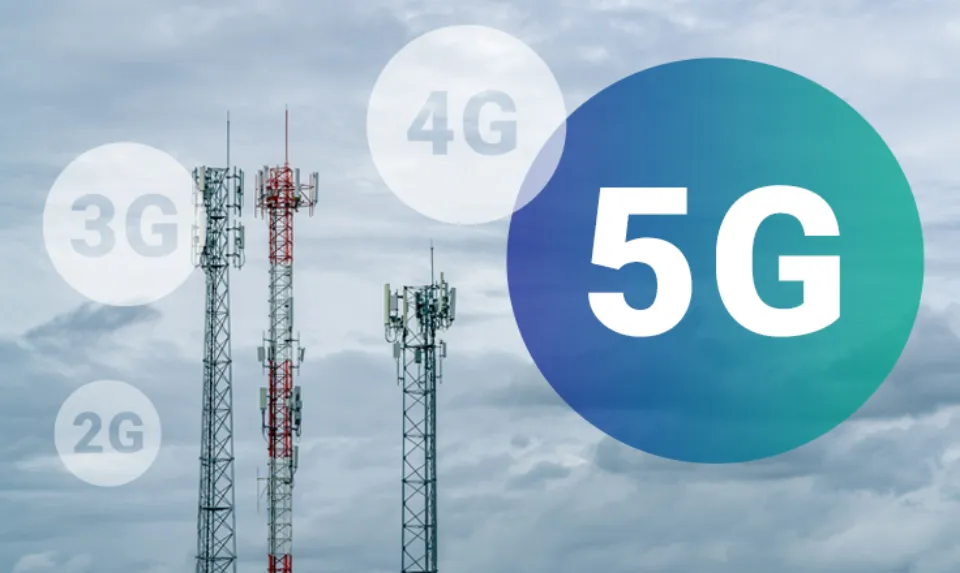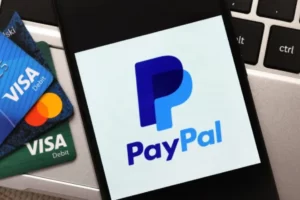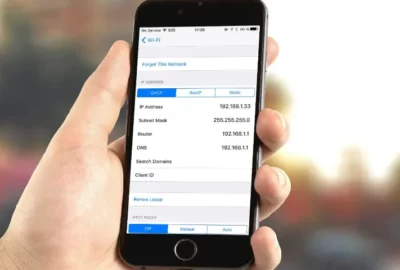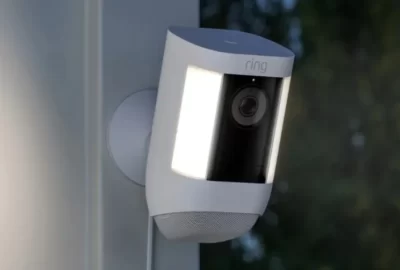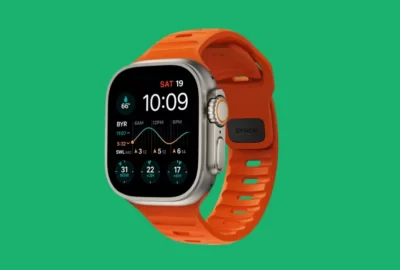What is 3G Vs 4G Vs 5G: Differences You Need to Know
3G, 4G and 5G are the 3rd, 4th and 5th generations of cellular technology, respectively.What is 3G Vs 4G Vs 5G? The key difference primarily comes down to their capabilities.
In order to keep customers happy with how quickly they can access internet-based services as the number of mobile phone users worldwide rises, mobile networks must adapt to handle more users and enormous data demands.
We’ll also share how 3G and 4G improved the home security space, and what homeowners can expect from 5G in the near future.
What is 3G?
Do you know what is 3G exactly?
3G is the third generation of mobile telecommunications technology, which runs on signals being passed between phone towers.
You can make and receive calls, access mobile internet, and send and receive data using a mobile phone, which sends and receives data from the tower closest to you via a network managed by your mobile phone provider (in the UK, Three, O2, Vodafone, or EE).
3G is an evolution of the previous 2G technology. The ability to access multimedia services, high-speed data transmission, and seamless roaming are the main technological differences. On packet data transmission, third-generation mobile communications are built.
The process of globalization, which started with the second generation of mobile communication systems, has changed and moved to 3G networks. Japan had the first commercial 3G network in 2001, and the UK had its first 3G network launch in 2003.
Related Reading:
What is 4G and the Difference Compared to 3G
4G has become the next-generation standard for mobile networks. In many nations since 2010, these IP-based networks have been in use since they were created in 2000.
The key difference between 3G and 4G is that the new technology is about three times faster than 3G and can support many more users. That is why all major UK telecom operators immediately adopted 4G.
What distinguishes 3G and 4G? Speed is primarily to blame. Here is how it affects the end-users:
- 3G network does not allow watching movies and videos in high quality, and with 4G, it is easy to do;
- 3G has data rate limits, and 4G network provides high-speed Internet to the user;
- within 3G, many Internet services are not functioning properly, whereas 4G has no such issues.
These are merely the outtakes from a comparison of 3G and 4G technology. When utilizing the new communication standard to connect to the Internet, the possibilities are practically endless.
Therefore, the switch from a 3G network to a 4G network heralded higher, more dependable, and optimized data transfers. 4G allows people to stream movies and songs, make video calls and play online computer games without experiencing lag. I
It also enabled users to use their mobile phones as useful personal hotspots for their laptops or other devices while they are out and about. For more information, check our guide on How to Tell If My iPhone is 3G Or 4G and Can 3G Phone Upgrade to 4G.
What is 5G and the Difference Compared to 4G?

5G is the fifth-generation technology standard for mobile networks set to deliver even higher multi-higher bandwidth than 4G, ultra-low latency, peak data rates of Gbps, and more reliability.
What sets 5G apart from 4G, then? One of the main parameters is the transmission speed: 5G is about 20 times faster than 4G.
The capacity to serve many more client devices than 4G makes up another important difference between 5G and 4G. The new standard allows service to up to a million customers within a 1 km2 area.
Another significant difference between 5G and 4G is that 5G uses a different radio frequency band than 4G, which is precisely what enables radically better network performance.
The 5G standard utilizes frequencies in the range of 30 to 300 GHz, while 4G uses frequencies less than 6 GHz.
The Speed Difference Between 3G Vs 4G Vs 5G
Digital trends claim that 5G will eventually reach speeds above 1 GB per second (with a theoretical top speed of 20 GB per second! ), while 3G can currently reach network speeds of 7.2 Mbps, 4G can currently reach 150 Mbps.)
The mileage varies based on the user’s location, such as whether they are standing still or, in the case of a moving vehicle, in motion. But this is the general idea of what a user can accomplish quickly with each generation.
What do those speeds mean, though, in reality? Or, more specifically, what do those speeds enable us to do?
Let’s take a look:
- With 3G speeds, our mobile devices can now manage video calling and internet access, albeit not without some difficulties and slow speeds. The first cellular-connected home security systems (previously, all systems were landline-based) also debuted with 3G.)
- With 4G speeds, a mobile user can now enjoy online games, high quality video conferencing, streaming in HD, among other things. You are already familiar with 4G capabilities as the majority of us have been utilizing it since 2008. With regard to 4G and security, the accelerated speed gave cellular networks’ alarm monitoring systems even quicker response times.
- With 5G speeds, we’re reaching a level of ludicrous speed that allows for completely autonomous self-driving vehicles, life-like virtual and augmented reality and 4k ultra Mobile HD streaming. You can receive even quicker security monitoring services by streaming ultra high definition security footage directly to your mobile device.
The Bandwidth Difference Between 3G Vs 4G Vs 5G
The amount of traffic that a cellular network can handle before slowing down depends on its bandwidth. The bandwidth capacities of cellular networks have increased with each new generation.
- With 3G and 4G bandwidth, a mobile user sees a noticeable deterioration of network speeds during peak hours of the day. 4G Significantly more bandwidth has been added to the 4G network thanks to LTE and other upgrades. Due to the daily addition of thousands of new devices to the network, this is a difficult battle.
- If you’re so inclined, you could stream an ultra HD movie during a Taylor Swift concert using 5G bandwidth, but doing so would be sinful.) 5G will also be able to handle the billions of upcoming connected home devices known collectively as the Internet of Things.
Changes in 5g bandwidth don’t directly affect home security. However, bandwidth improvements to a home’s personal WiFi network, like WiFi 6, enable more connected devices and reduce device disconnections.
The Accessibility Difference Between 3G, 4G and 5G
The infrastructure of each successive generation of wireless networks has been improved. As a result, accessibility and internet access have significantly increased. even the most remote areas of the U.S. will soon have 4G or 5G access.
For residences and businesses that were previously cut off from dependable cellular networks, this is excellent news. The outdated landline security monitoring for these properties can now be replaced with a much more secure cellular network.
3G Vs 4G Vs 5G Comparison Table
To make everything clear, we have made a comparison table.
| Comparison | 3G | 4G | 5G |
| Introduced in year | 2001 | 2009 | 2018 |
| Technology | WCDMA | LTE, | MIMO, mm Waves |
| Access system | CDMA | CDMA | OFDM, BDMA |
| Switching type | Packet switching except for air interference | Packet switching | Packet switching |
| Internet service | Broadband | Ultra-broadband | Wireless World Wide Web |
| Bandwidth | 25 MHz | 100 MHz | 30 GHz to 300 GHz |
| Advantage | High security, international roaming | Speed, high-speed handoffs, global mobility | Extremely high speeds, low latency |
| Applications | Video conferencing, mobile TV, GPS | High-speed apps, mobile TV, wearable devices | High-resolution video streaming, remote control of vehicles, robots, medical procedures |
Final Words on 3G Vs 4G Vs 5G
The comparison of 3G, 4G and 5G allows us to highlight each technology’s characteristics and advantages.
Analysis of the differences between 4G and 5G enables us to comprehend why each new standard is faster, more dependable, and more potent than the one before it.
FAQs
How Much Faster is 5G Than 3G?
According to digital trends, 3G can reach network speeds of 7.2 mbps and 5G will eventually reach speeds in excess of 1gbps.
How Much Faster is 5G Compared to 4G?
5G up to 100 times faster than 4G.
What Are the Disadvantages of 5G?
Broadcasting range is smaller and there is insufficient global coverage.

